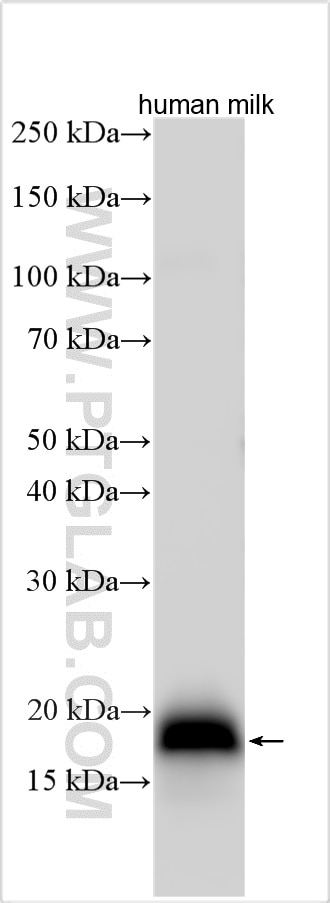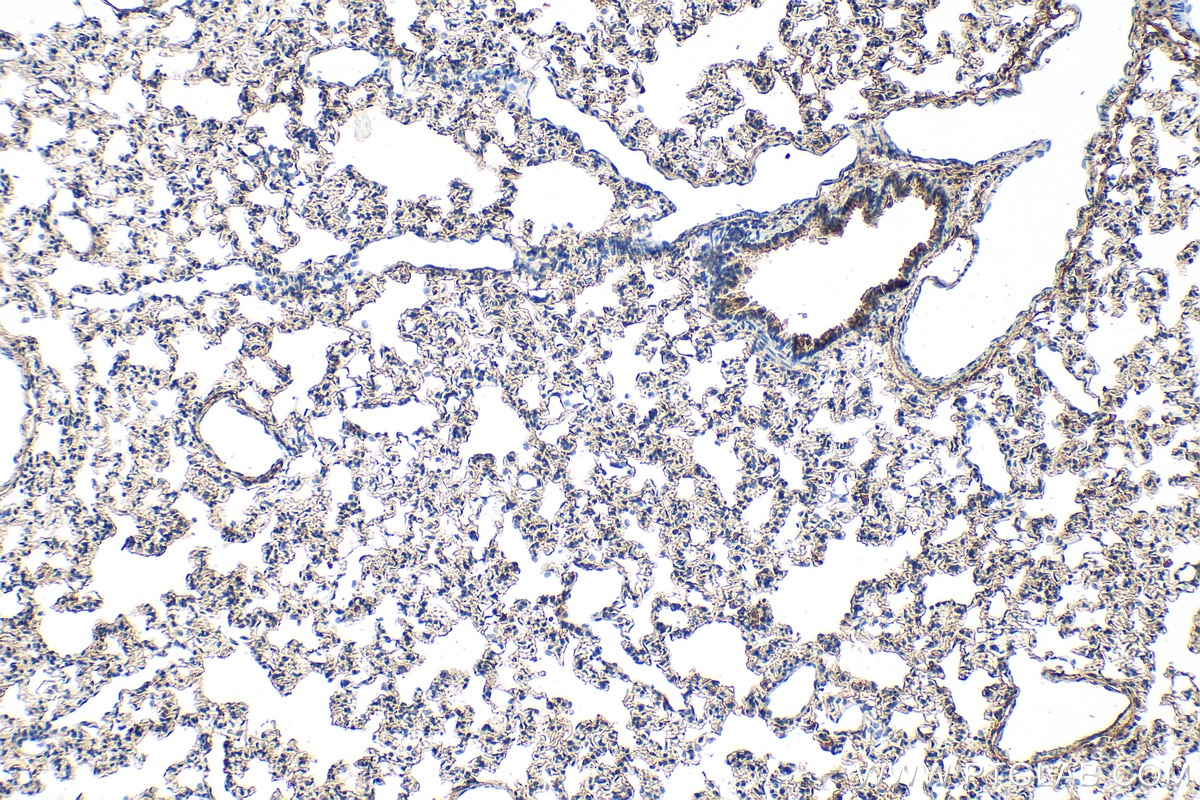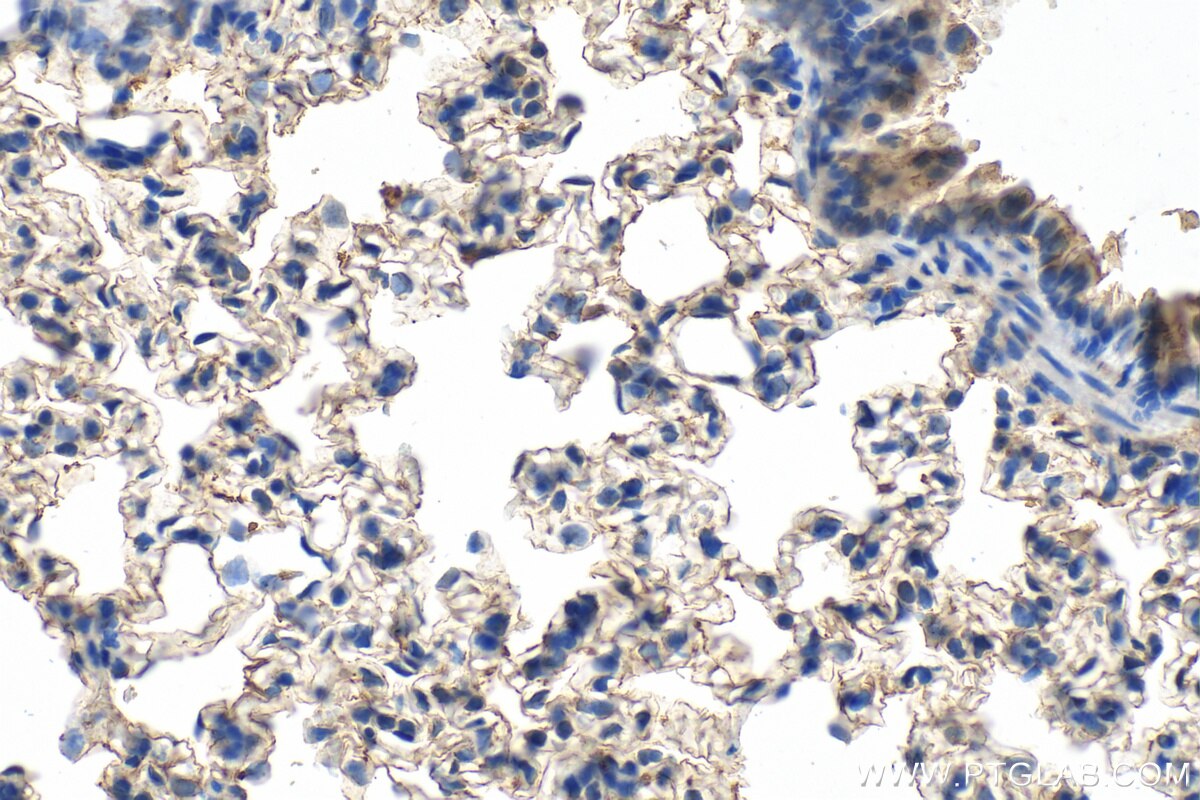Validation Data Gallery
Tested Applications
| Positive WB detected in | human milk, THP-1 cells |
| Positive IHC detected in | rat lung tissue, mouse bladder tissue Note: suggested antigen retrieval with TE buffer pH 9.0; (*) Alternatively, antigen retrieval may be performed with citrate buffer pH 6.0 |
Recommended dilution
| Application | Dilution |
|---|---|
| Western Blot (WB) | WB : 1:500-1:1000 |
| Immunohistochemistry (IHC) | IHC : 1:50-1:500 |
| It is recommended that this reagent should be titrated in each testing system to obtain optimal results. | |
| Sample-dependent, Check data in validation data gallery. | |
Product Information
30732-1-AP targets RNASE4 in WB, IHC, ELISA applications and shows reactivity with Human, mouse, rat samples.
| Tested Reactivity | Human, mouse, rat |
| Host / Isotype | Rabbit / IgG |
| Class | Polyclonal |
| Type | Antibody |
| Immunogen |
CatNo: Ag29272 Product name: Recombinant human RNASE4 protein Source: e coli.-derived, PGEX-4T Tag: GST Domain: 29-147 aa of BC015520 Sequence: QDGMYQRFLRQHVHPEETGGSDRYCNLMMQRRKMTLYHCKRFNTFIHEDIWNIRSICSTTNIQCKNGKMNCHEGVVKVTDCRDTGSSRAPNCRYRAIASTRRVVIACEGNPQVPVHFDG 相同性解析による交差性が予測される生物種 |
| Full Name | ribonuclease, RNase A family, 4 |
| Observed molecular weight | 17-20 kDa |
| GenBank accession number | BC015520 |
| Gene Symbol | RNASE4 |
| Gene ID (NCBI) | 6038 |
| RRID | AB_3086405 |
| Conjugate | Unconjugated |
| Form | |
| Form | Liquid |
| Purification Method | Antigen affinity purification |
| UNIPROT ID | P34096 |
| Storage Buffer | PBS with 0.02% sodium azide and 50% glycerol{{ptg:BufferTemp}}7.3 |
| Storage Conditions | Store at -20°C. Stable for one year after shipment. Aliquoting is unnecessary for -20oC storage. |
Background Information
Human Ribonuclease 4 (RNase 4), one of the eight members of the human RNase A superfamily of endoribonucleases, is a uridine-specific endoribonuclease with a preference to cleave RNA after uridine residues prior to purines (PMID: 33818125). RNase 4 is a newly identified host defense peptide in the human kidney and bladder and kills uropathogenic E. coli (UPEC) and multi-drug resistant UPEC (PMID: 28955965).
Protocols
| Product Specific Protocols | |
|---|---|
| IHC protocol for RNASE4 antibody 30732-1-AP | Download protocol |
| WB protocol for RNASE4 antibody 30732-1-AP | Download protocol |
| Standard Protocols | |
|---|---|
| Click here to view our Standard Protocols |





